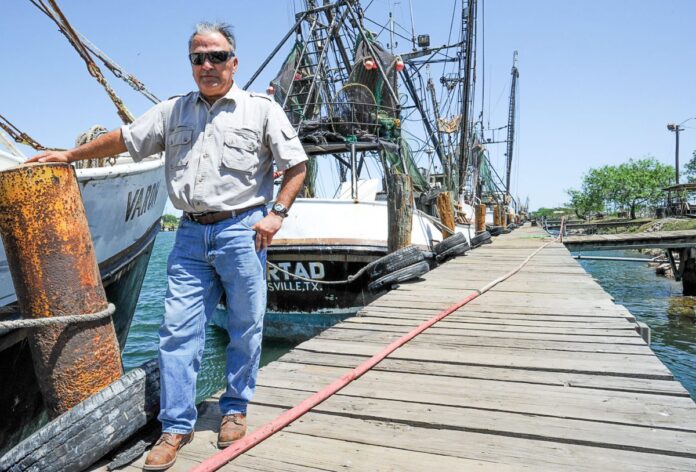BROWNSVILLE — The Department of Homeland Security announced July 17 that it would approve 15,000 additional H-2B visas in response to heavy lobbying by various sectors, including the Texas shrimp industry.
The Brownsville-Port Isabel shrimp fleet, along with the rest of the state’s industry, has been scrambling to find enough workers to crew trawlers since Congress last year failed to renew the H-2B “returning worker exemption,” which waived the cap for H-2B foreign workers who came back to the same jobs each year.
As a result, fisheries, landscape companies and the hospitality industry have struggled to fill positions normally filled during the busy season by foreign workers.
The Texas shrimp season reopened July 15, and boats are already in the Gulf of Mexico. Even so, most fleet owners have submitted applications for some of the newly released 15,000 visas even though it will be three or four weeks, once the paperwork is done, before they actually get any workers, said Texas Shrimp Association Executive Director Andrea Hance.
That’s because, one, boats are still short crew members and, two, if they don’t apply Homeland Security may assume next time around that they didn’t really need more H-2B workers after all, she said.
“I think just about everybody went ahead and applied for those,” Hance said. “The problem is that if we don’t apply for them, that could come back and bite us in the future.”
A condition of being able to hire foreign H-2B workers is that the applicants — shrimp boat owners in this case — have to advertise the jobs to U.S. residents. Noting that life on a shrimp boat for 30 to 45 days at a stretch is tough and dangerous work, Hance said few U.S. citizens respond to the ads, and those who are hired either don’t show up or quit right away.
The Texas shrimp industry hired about 200 U.S. citizens for the current season, she said. Hance said her best estimate is that, during the first week of the season, half of the 100 or so U.S. workers hired by the local shrimp fleet quit and had to be taken back to the mainland.
“We had boats come in the very next day and drop people off,” she said. “Statistically there’s about a 97 percent chance that U.S. workers won’t make it. I’ve heard too many stories. It’s really sad.”
The Gulf, meanwhile, is dense with shrimp this season. Hance cited the case of a boat whose crew was hauling in $6,000 worth of shrimp per night when it had to bring a U.S. worker back to shore.
“When that boat has to turn around and come back in, that’s money lost not just to the owner but to the crew,” she said.
This causes a domino effect in some cases, in which even experienced crew members are quitting under-crewed boats since they’re not able to catch enough shrimp for it be worthwhile economically, Hance said.
“The problem is that boats don’t have qualified people, so everybody’s losing money,” she said.
Hance said the industry is still learning the ramifications of going into a season without enough qualified workers. If boat owners’ applications are successful and more H-2B workers trickle down, it doesn’t mean the handful of U.S. seasonal workers still on the job will get the boot, she said.
Far from it, fleet owners want as many homegrown crewmen as possible, since they’re the ones most likely to graduate from header to rig man and up, Hance said.
“We’re not going to get rid of him,” she said. “That’s somebody that could be a captain in the next year or two. Most of the captains make six figures. Advancement will be pretty quick if they want to stick with it.”




